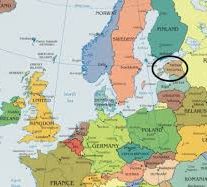
Estonia’s way for an innovative EU
Employment and Social Affairs 3 July 2017Since the first of July 2017 Estonia has taken over from Malta the EU Council presidency, and will deliver it to Bulgaria at the beginning of 2018. Estonia is starting indeed one Presidency trio with Bulgaria and Austria, with the motto “Unity through balance”. According to Tallin’s presidency, to succeed in dealing with many challenges is facing, the EU has to work more on what does unite member countries finding the right balance among them. For many aspects it is the right concept during this difficult times, when the EU seems to have finally overcome the most urgent phases of the crisis caused by rising populism, and could work more clearly on a wide and steady advancement of the common project.
Estonia has set basically four priorities: an open and innovative European economy; a digital Europe and a free movement of data; a safe and secure Europe; an inclusive and sustainable Europe. Speaking at the General Affairs Council in Luxembourg at the end of June, the Estonian Deputy Minister for European Union Affairs Matti Maasikas said his country would “try to be revolutionary” and have a “short and focused program”.
Estonian presidency will be obviously focused on security: from one side Tallin is called to carry on the work done in the past months in reaching a common security and defense policy; but on the other hand Estonia will introduce a strong message relate to the need to strengthen the Eastern part of Europe. At the beginning of the semester, Italy will host the Berlin process forum, as a part of European integration of the Balkans; Estonia from its side will pose more attention to the European Eastern Partnership, as an instrument to enhance security in the East of Europe.
But apart from security and migration, Estonia presidency seems to be strongly focused on innovation in business. A core goal for Estonia semester will be to deepen the single market with the protection and promotion the EU’s four freedoms – free movement of goods, persons, services and capital – explicitly mentioned in the programme. And other key element of Estonian strategy to innovate the business environment in Europe is “to implement a Connected Digital Single Market for All by the end of 2018”. According to this objective, Europe must exploit the benefits of technological progress that is bringing continuous change to citizens, businesses and governments. The current digital revolution has the power to transform human societies and economies, as done in the past by other historical revolutions. And digital technology impacts on every aspect of EU policy: production and consumption of energy, transport, capital flows throughout Europe. EU citizens are now able to travel throughout the Union without worrying about mobile roaming charges. Furthermore it is essential that EU businesses grasp the opportunities of digital technology to remain competitive at global level.
Meanwhile, to implement this strategy, it is crucial to overcome the wide gap existing among EU countries and to reach this goal Estonian expertise could be a decisive element. Following independence from the Soviet Union, Tiigrihüpe (Estonian for Tiger’s Leap) policy was undertaken to heavily invest in development and expansion of computer and network infrastructure in Estonia, with a particular emphasis on education. Since then, a lot has been done and in 2011 the government gazette in Tallin hasn’t been printed in book form anymore. To provide a gateway to all available eServices in the country, Estonian government developed the so-called State Portal eesti.ee. Today over 800 services are offered via the portal, both governmental and non-governmental. Some of the most popular eServices in Estonia include: On-line tax filing; Electronic health records; On-Line voting (in 2005, Estonia became the first country to use on-line voting for nationwide elections); Company registration – Estonians (and foreign national) can register a new business online in just minutes. Also through its expertise Estonia aims at developing a favourable environment in the EU for new innovative services, crucial element for opening new jobs opportunities for young Europeans.







